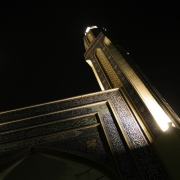From Aslamat al-Ma’rifa to al-Takāmul al-Ma’rifī: A Study of the Shift from Islamization to Integration of Knowledge
Over the past half-century, the study of Islam in the Muslim world has been preoccupied with three global projects: maqāṣid al-sharīᶜa (the higher objectives of revealed law), al-wasaṭiyya al-islāmiyya (Islamic moderation), and aslamat al-maᶜrifa (Islamization of knowledge). Of these three, the latter has been the most substantial enterprise due to its ambitious work plan, extensive scope, and far-reaching influence. However, in recent decades, the Islamization of knowledge project has undergone significant developments culminating in its reformulation as ‘knowledge integration’ (al-takāmul al-maᶜrifī). This paper traces and analyzes the key manifestations of this notable transformation. Firstly, it surveys the various contexts of eschewing the concept of ‘Islamization’ and adopting ‘integration’. Secondly, it examines the conceptualization of the construct of ‘al-takāmul al-maᶜrifī’ within pre-modern and contemporary Islamic contexts. Thirdly, it investigates the practical implementation of knowledge integration with a special focus on the domain of higher education. The question that brings all three sections together is whether the knowledge integration model embodies a true paradigm shift or is a mere name change while bearing on the old rationale and approach of Islamization. The present paper argues that, under the banner of al-takāmul al-maᶜrifī, a shift from an internally focused intellectual effort to one that envisions new opportunities for epistemological renewal is recognizable at the individual level. However, institutionally, the application of this paradigm is still pending full and effective realization.




